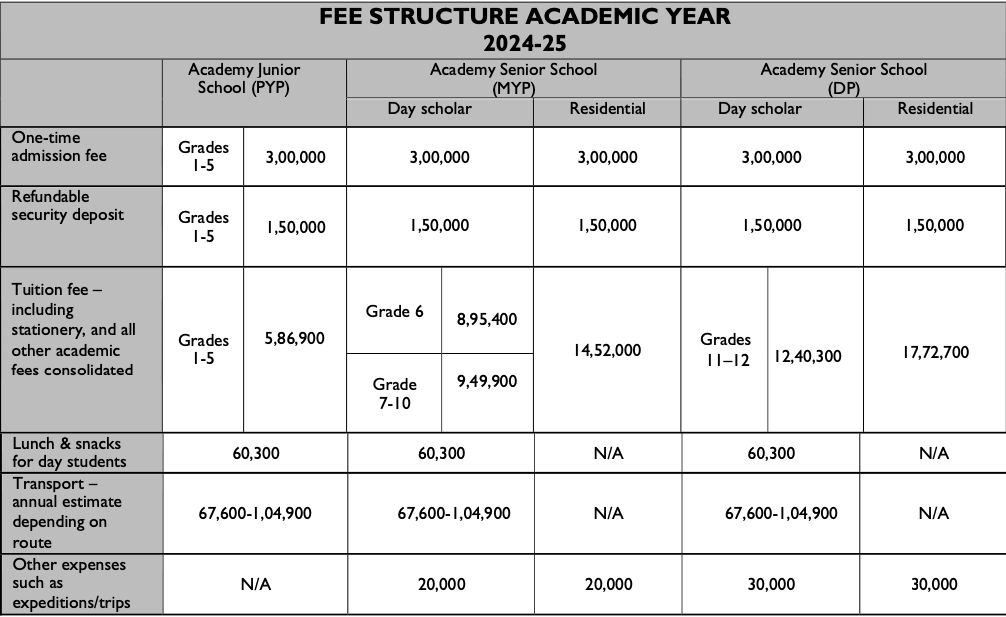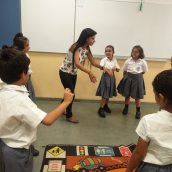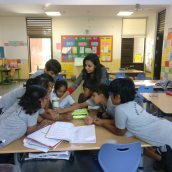Meet Xenia Manasseh
Atlanta-based magazine, Voyage ATL, features AKA Mombasa alumna, Xenia Manasseh (Class of 2014).
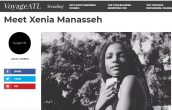
ARTISTS TO WATCH: XENIA MANASSEH
Tangaza Magazine, an online pubilcation focusing on music industry professionals from East Africa, spotlights singer-songwriter Xenia Manasseh (Class of 2014).
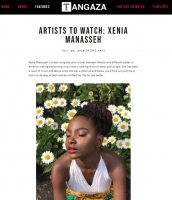
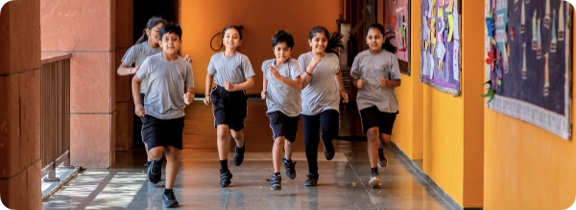
Fee Structure
Please click here to download the Fee Structure for the 2024-25 academic year.
NOTES:
- A one-time, non-refundable admission fee is payable for students enrolling for the first time. The admission fee must be paid to secure a place for a child at the Academy. This cannot be deferred or paid in instalments. The due date is one week after the offer has been accepted.
- A one-time refundable security deposit is also payable on acceptance of admission and should be paid together with the admission fee mentioned above. It is refundable when a student leaves the Academy as long as the required notice has been given in writing and “No Dues” clearance is obtained from the Academy. No interest is payable on this deposit.
- A sibling discount on a tuition fee of 5% will be applicable for second and subsequent children.
- The total fees for the academic year may be paid in full with an early-payment discount of 3% on or before 31 July 2024.
- The fee is payable on due dates as mentioned in the invoice/memo for the services.
- The Academy will charge a monthly surcharge of 2% on outstanding dues older than 30 days. In case the full fee that is due is not paid within one month period following the deadline, the student will not be allowed to attend classes or participate in other activities undertaken by the Academy.
- The Total Fee includes course fees, use of essential course books, library books, IT and science laboratory equipment and certain classroom supplies. The fees do not include uniform costs.
- Exam Fees for the IB Middle Years Programme and the Diploma Programme will be billed separately based on the actual fee issued by the International Baccalaureate Organization (IBO).
- Parents of returning students will be invoiced four to six weeks prior to the new Academic Year.
- The Academy does not accept cash for Fee payments. All payments must be made by Direct Bank Deposit, Bank Transfer, Cheque or Demand Draft even if the payment is being made by a third party such as a sponsoring organization. Parents must provide the Finance Office (finance@agakhanacademies.org), with a hard or an electronic copy of proof of payment showing the student's full name and the student identification number within 15 days of fund transfer for issuance of payment receipt. The absence of this information may delay crediting the fees reflected on your account in our system.
- Parents are responsible for ensuring that the fee payments are made into the correct bank account of the Academy. In the event of any change in bank account details, the changes will be communicated to parents in writing via official communication from the Academy with new payment bank details.
- If a student wishes to leave the Academy, one term’s advance notice of withdrawal must be given in writing, or one term’s worth of the annual fees will be due and payable. School clearance will not be possible until all outstanding dues are settled in full. Please refer to the points for withdrawal under number 12 in the PDF document above.
- The Academy reserves the right to withhold results, school certificates, transcripts or any other information and/or documents until all outstanding dues are settled in full.
- Admitted students, who demonstrate financial need and duly fill in and submit the application along with required supporting documents within the stipulated time, can be considered for Financial Aid. An independent Financial Aid Committee is responsible for reviewing and approving any request for Financial Aid by students.
- The above terms and conditions may be modified or new terms may apply to reflect changes in the law or our services. For further information, please contact us at admissions.hyderabad@agakhanacademies.org.
- Please note that the Fee Structure is subject to annual review.
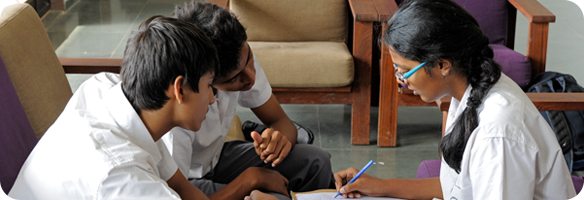
Application Forms
Application forms can be completed online using the links below or via the downloadable forms. Forms completed in hard copy should be either posted, or scanned and emailed to the admissions office at the earliest opportunity. Applications should include the following:
- completed application form
- copies of the applicant’s last two grade reports
- a copy of the applicant’s birth certificate or passport
- a copy of Aadhaar card
- evidence of vaccination (Junior School)
- two passport-sized photographs
- application fee (non-refundable): INR 3,000.
*Please note that a completed financial aid form must be submitted together with the application form in order to apply for a bursary.
Address
Admissions office
The Aga Khan Academy Hyderabad
Survey No: 1/1, Hardware Park
Maheshwaram Mandal, R.R. District
Hyderabad 501 510
Telangana, India
+91-40-66291300
Email: admissions.hyderabad@agakhanacademies.org
Online application forms
To access the online application service, please click on one of the options below.
Downloadable application forms
Click on a link below to download an application form.
![]() IB Middle Years Programme application form (2020-21).pdf
IB Middle Years Programme application form (2020-21).pdf
![]() IB Diploma Programme application form (2020-21).pdf
IB Diploma Programme application form (2020-21).pdf
Financial aid form
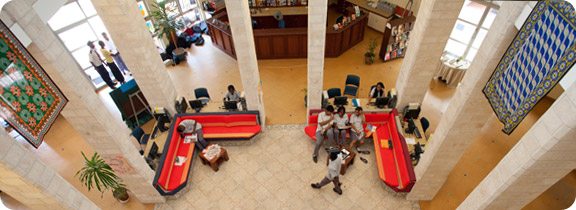
Articles of Interest
The articles listed below have been drawn from the Aga Khan Academies newsletter. They include feature stories and information on aspects of the Aga Khan Academies programme.
Subscribe to the Aga Khan Academies newsletter
Joseph Munyambanza: The story of a conqueror
As we sat for our lesson on a sweltering Tuesday afternoon, there was anticipation for the upcoming week-long break, obstructed only by the last lesson of the day. We sat for a while in a lazy stupor before our speaker arrived humbly apologising for his delay. Joseph Munyambaza was calm and composed as he began his initial talk on disparities of living. Despite appearing to be an average man who started by talking of ordinary sundries, he informed us that he was raised as a refugee and that it was education that propelled him to the position he is in today.
He began by narrating to us that life was free and full of enjoyment in the Congo. “There was plenty of food, I was always playing…” he recalls as he spoke of his six-year old self. Due to his age, he is now aware that he was shielded from most of the atrocities that must have taken place. His older siblings on the other hand, were not as fortunate. “My brother, who was a teenager at the time, was greatly disturbed by the events that took place…” Eventually, his older brother sought comfort in alcohol in an effort to forget what he had seen. Joseph’s family relocated to refugee camp in Western Uganda in a place called Hoima. Life was different and evidently, it was hard. The life of abundance and freedom was long gone and now the life of lack and want was all that there was. You can imagine the terrible living conditions in the refugee camp which was congested and dangerous. As he grew life seemed to eventually settle when tragedy struck. Joseph’s older sister passed away only a few days before exiting the refugee camp to attend university. What really moved me was the fact that she died under preventable circumstances. His sister died because his family did not have sufficient funds to pay for treatment.
This turning point propelled him to getting a placement in a high school outside the refugee camp where he was to begin to establish his academic prowess. He further explained that he knew how important his opportunity was so he would remain focused in his studies at all costs. Things were running smoothly throughout his years in high school with his school fees sorted out by the UNHCR. He was determined to also give opportunities to other refugee children who, just like him, were so full of potential. “When I was in my second year of secondary school, my friends and I wanted to enable other refugee children to access education. And so we started COBURWAS, a youth organization that represents Congo, Burundi, Uganda, Rwanda and Sudan. Refugees in the refugee camp we lived in came from these countries and we wanted to have a shared solution. All youth came together to think of solutions. Though we had many challenges we realised that lack of access to education was more dangerous. We started tutoring, which I did to enable children to get good grades and feel motivated to love school. We also worked for people to raise money to buy exercise books for the most vulnerable children in our midst. We were a club at first, but with time our programs expanded and we became a community-based organisation. The refugee community was of great help because they supported us with the little available and it meant so much in our small start.”
However, in his fourth and most senior year, his scholarship was withdrawn. “My education was initially supported by UNHCR in senior one but when I went to senior two they sent letters that UNHCR does not have more money to support education. Fortunately, a friend called Eric Glustrom who was starting an organisation helped me to complete senior four.” Even with a graduate certificate under his belt, he was unsure of what was to come next. Then, another whirlwind of events took place such that he was admitted to the ALA (African Leadership Academy) located in South Africa. This is an institution that is internationally recognised for producing innovators and entrepreneurs who are sure to make a positive impact within their home countries. Joseph says, “I had no dream of getting to a great school like ALA. I was already extremely grateful to be in my school that was the best in the district. And so even after being accepted to into ALA I still did not believe it until I landed in Johannesburg and was handed the key to my room. It was more than I could have ever dreamed of. And when I reached at ALA I wanted to be the best I could as a student, an ambassador to my fellow youth in the refugee camp and do well in class.”
All in all, his story was able to bring out the extent of the disparities of lives outside our own. The concept of war, forced migration and other forms of hardship is one that cannot be explained in a short period of time but were nevertheless highlighted in his talk. It is fascinating how a life can change simply as a result of joint efforts and self-motivation. By the end of his talk it was crystal clear that according to Joseph Munyambanza, education is a powerful tool.
By Bijou Mwaura, DP1
Anjum Budhwani - living her dream
Anjum has been teaching since the time she was an undergraduate student. She began as a volunteer at her community Religious Education Centre as part of the Institute for Ismaili studies’ Ta’lim programme, a course designed to introduce children to the faith, ethics, history and cultures of Muslim peoples and of the Ismaili community in particular. “Compassion builds a strong relationship between teacher and student,” she says. “If a teacher is caring and loving the student feels safe with her, and learning will happen successfully in turn.”
Anjum received her first bachelor’s degree in commerce from Hyderabad’s Osmania University, and went on to collect another bachelor’s in education followed by a master’s degree when she decided to become a teacher. Her aspiration was to join the Aga Khan Academy Hyderabad, and she realized this dream in 2012. “I feel elated when I hear people saying ‘She works at the Aga Khan Academy Hyderabad.' ” It was also her mother’s dream to see her daughter become a teacher.
Though she says every day at the Academy is special, some days have been more special than others. “I cherish the day when His Highness the Aga Khan was here on 15th April 2015,” beams Anjum, remembering some his words to our teachers. “He mentioned that there will be difficult times while you are teaching and learning and you will have failures during your journey of teaching. But remember the result and keep the goal in your mind that we are working towards creating future leaders and that it’s not going to be easy.” These words are a part of what inspire Anjum to teach at the Academy and to better herself as a facilitator to young students.
One of her favourite things about teaching at the AKA Hyderabad is discussing teaching practices with her colleagues. Anjum has imbibed the philosophy of being a lifelong learner; learning from her colleagues, she explains, has been key to her growth as a teacher. “We have regular and ongoing professional development, which has provided me with a lot of opportunities to improve myself,” shares Anjum. “Sharing best practices, professional development reading, action research and other platforms where we get to learn from each other gives us the chance to reflect on our learning and teaching process.”
These collaborative efforts have helped Anjum grow into the ideal PYP teacher who believes in giving her students voice, choice and ownership in their school work. “I design assessments and learning engagements with students in order to provide them with ownership and accountability in their learning.” Miss Anjum’s classroom is decorated with student input, with students also influencing their seating arrangement. In her class you will see the Innovation Corner, where students create new things from recycled material. Students of 3K have a duty list, where students are given charge of classroom resources like books and stationery. Giving students responsibility and ownership of their space this way helps allows them an early understanding of stewardship.
“She endeavors to exemplify stewardship through her actions,” says Academy Junior School Principal, Sreelatha Kumar. “Equanimity and her unquestionable commitment are her best qualities." Sreelatha adds that it is remarkable how Anjum deals with adults and children with the same grace and evenness.
It is very common that parents visiting the Aga Khan Academy Hyderabad Junior School, upon seeing students in the sand pit or in the art room, wish that they could have done their primary education here. Should they peep into Miss Anjum’s grade 3 classroom, they will understand that it is teachers like her whom they missed having in school, because they are the ones who help create the idyllic aura of a primary school.
Written by Ajay Sundaram
Ruhi Kamal Manek (Class of 2016): Advocating for Africa
Ruhi Kamal Manek, an alumnus of the Aga Khan Academies in Mombasa and now a sophomore at Yale University in the United States, took away one enduring lesson from the Academy: the importance of engaging in thoughtful and careful consideration of diverse opinions. She explains that it was her time at the Academy that forced her to reexamine her old-world views and believes that her new way of thinking as a citizen of the world was borne of her stay in residence at the school:
“Living with people from so many diverse backgrounds helped me appreciate differences in people. This experience further helped me feel comfortable interacting with people from diverse backgrounds and diverse cultures at Yale.”
Ruhi was born in Nairobi, Kenya and grew up in the small town of Eldoret. It was her desire to learn and challenge herself more that made her apply to the Academy.
“I could not think of a better place to do that than at the Academy,” Ruhi states. “Being admitted to the school was the beginning of a transformative journey for me - a defining moment in my academic and personal life.”
The Academy places immense importance on meaningful public service. Ruhi participated in numerous voluntary undertakings but it was involvement in the annual school-based deworming program in the impoverished Bombolulu area of Mombasa that had a lasting impact on her. Under this program, school children receive an oral dose of deworming medicine designed to lower their risk of infection by worms and thus enhance their health and school productivity.
“The experience opened my eyes,” Ruhi says. “The thought that something so trivial as administering a few drops of medicine in a child’s mouth can transform that child’s future was inspiring to me.”
Involvement in this program inspired Ruhi in many ways. Watching the children joyfully engage with life forced her to reflect on values of humility, modesty and gratification:
“As I stood among the children, I felt as though my heart had grown twice as large, making space for these beautiful souls. I was filled with an inexplicable amount of joy as I marveled at the contentment and optimism around me. Despite the conditions in which the children lived and learned, they were radiating with happiness. I was in awe. The whole experience reminded me of a quote by the Buddha: ‘The cessation of desire is the cessation of suffering.’”
After this experience at the Academy, Ruhi continued her volunteer work at Yale. She is part of the TEDxYale team and helps to organize seminars and conferences. She is a member of Yale UNICEF and is involved in fund-raising efforts to make a difference in children’s lives globally. Committed to women’s rights regarding education and leadership roles, Ruhi also joined the Yale chapter of the Circle of Women, a non-profit organization “that educates, inspires and empowers women to become leaders and peacemakers.”
Additionally, Ruhi is involved in developing a wellness curriculum for a girls’ secondary school in Orkeeswa, Tanzania, which promotes the ideas that healthy students are better learners and that focusing on wellness now can produce huge intergenerational benefits.
“My first year at Yale has undoubtedly been enhanced through my participation in activities that I have long been passionate about,” states Ruhi. She unequivocally credits the Academy’s International Baccalaureate (IB) curriculum and the residential program for her growth and personal development. “My journey at the Academy was one of the most intense yet fulfilling growth periods of my life. I think it is safe to say that it played a key role in helping me develop the person I am today.”
When asked what her aspirations are for the country of her birth, Ruhi radiates determination. “I want to help redefine the way in which the rest of the world views my country, and more particularly the African continent. I want to be an active agent in ensuring that our stories are no longer told for us but by us.”
She is also determined to promote education in her country. “I want to tackle the issue of the lack of education. I value nothing more than the education I have been so privileged to receive and the many opportunities that have come my way because of it. I wish to help provide the same for as many people as I possibly can in my country of origin and beyond.”
By Perviz Walji
Newsletter readers please click here to return to the newsletter (browser version)


